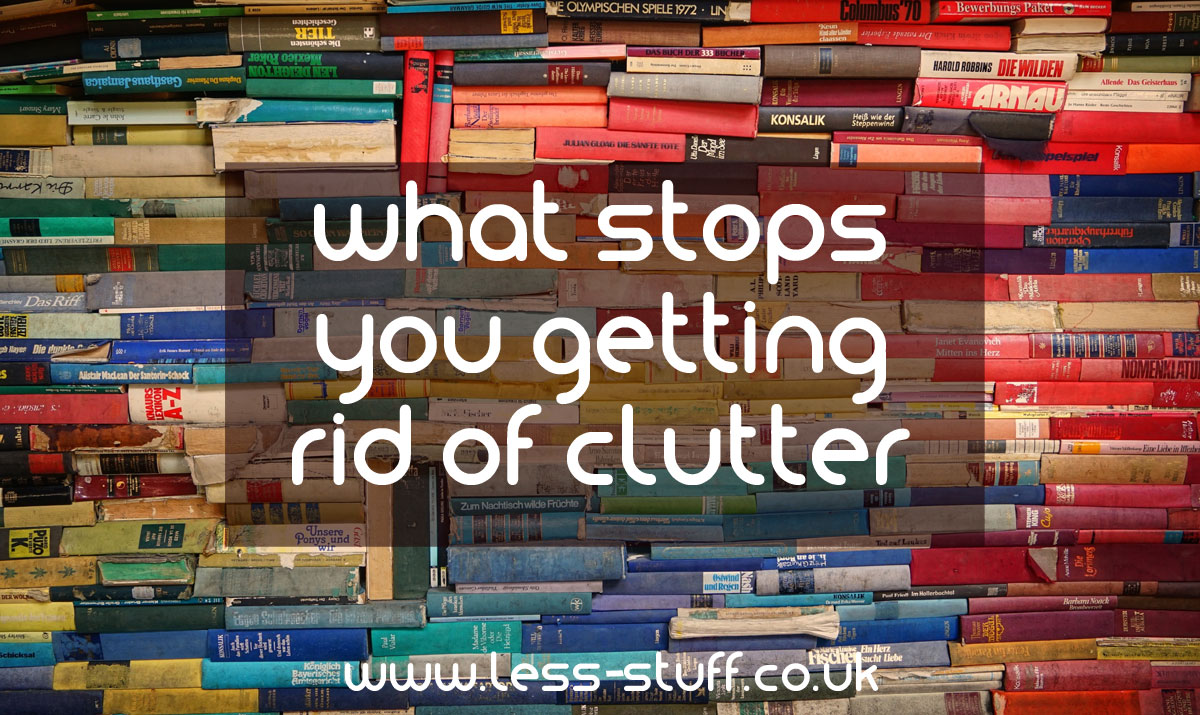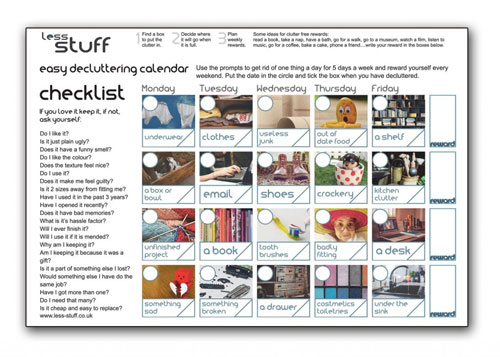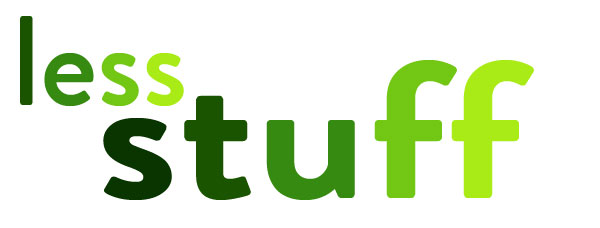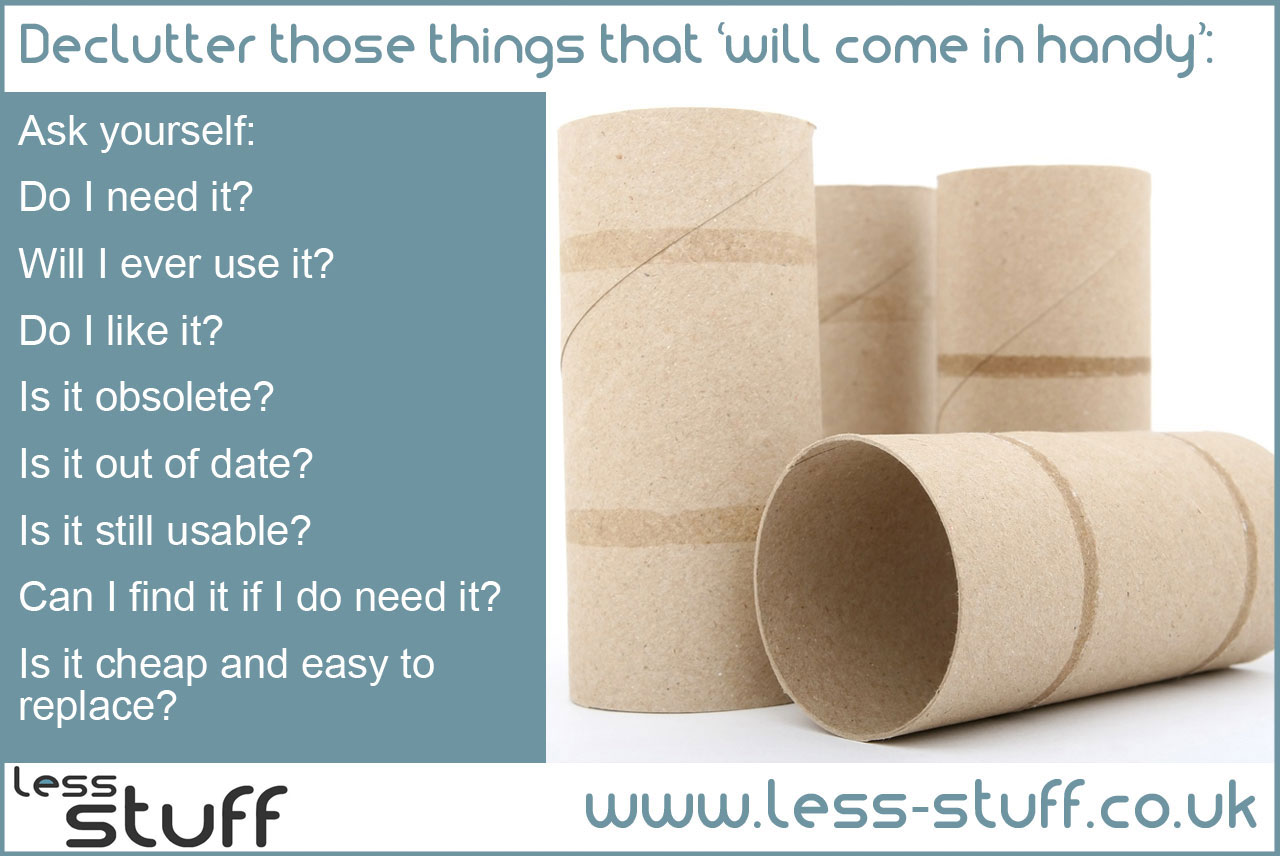
Why you can’t declutter and what is stopping you
You are keeping things because you think you should
We will never forget our loved ones although it makes us feel more connected to own something they once had.
If that thing is downright ugly or totally useless you might be better off with just a memory. It is so easy to hang onto things because the person they came from meant something to you. That feeling isn’t in the object, it is in your heart. If you love the keepsake then all is well. If you have so much of someone else’s life that you can’t enjoy your own, it might be a good idea to consider re-homing it. We had a thread in the Facebook group recently by someone who had inherited a lot of beautiful bed linen. It was expensive stuff but didn’t fit any of her beds. She decided to offer it to friends of the family and they loved the idea. Sheets that would have stayed in her cupboards became curtains in a friends house and which spread and perpetuated the memory of the loved ones.
You are keeping things for someone else
Staying on the inheritance theme, it sounds like a lovely idea, keeping something for your grandchildren to inherit. In reality, you may be giving them a burden they feel they need to store instead of the loving gesture you intended. And how long are you intending to keep these things for? Is it really worth keeping all those few extra plates for when your 3 year old eventually leaves home?
- Will they really want it?
- Would they prefer to choose their own?
- Will it cause extra stress?
- Will they feel it is too precious to use?
If you can talk to them, and just test the water about what they might like this could save a lot of guilt later. Just ask them if they like whatever you were thinking of giving them.
You are keeping useless things in case they come in handy
Being brought up by a war time granny I’m well schooled in keeping things in case they come in handy. I’ve got fabric, yarn, notions, tools, paint and enough food to feed us for a couple of months. This only works if you can find things and they don’t go so out of date you can’t use them.
What are you keeping and when do you realistically think it will be useful? Will you use the paint you kept to touch up marks? Will you use all those jam jars this year? If you find that you are having to buy stuff you know you have because you can’t find it there is no point storing it.
- Are you likely to use it in the next decade?
- Is it such a tiny amount it is not worth keeping?
- Are you keeping it with similar things so it is easy to find?
- Has it been damaged by rust, mice, damp or bad storage?
- Does it need a lot of work to make it useful?
Scrapstores take ends of paint and charity shops often love craft materials so your handy things could be properly useful for another person.
You are bringing more in that you are taking out
Upgrading is great. It is wonderful when you find something that is better than the thing you have been making do with. But if keeping clutter down is a priority, you really need to get rid of something when you get something new.
We can shop 24 hours a day now. Our potential for re-cluttering is at an all time high. Try to make it an unwritten rule that if you get something new, another thing has to leave the house. Ramp up the decluttering by getting rid of 2 things for every one that comes in.
You think it has to be all or nothing
I wish there was another word for ‘decluttering’. Most people link it with minimalism in the blink of an eyelid but they are 2 very different things.
Decluttering is getting rid of crap you do not need. Minimalism is living with the least possible stuff.
Personally I do not think minimalism is sustainable. I have tools I’ll use once a year, as a minimalist, I’d have to buy, hire or borrow them when I needed them. I have clothes I love but will never wear. They still make me happy and I still get a surge of endorphins when I see some fabric patterns and feel the textures. I have no desire to prune down my wardrobe and miss out on that feeling of happiness.
It is possible that in the back of your head you feel like a failure because you still have stuff. Feeling like we are failing can stop us from doing anything at all, this is probably a defence mechanism deep in the ancient roots of our brain. Instead of judging yourself against an impossible minimal standard try thinking in terms of ‘good enough’. If you have a dozen teapots that make you happy it doesn’t matter that you only drink coffee. If you have a dozen teapots that you are ambivalent about, or that make you feel sad, bad or guilty in any way then it is a good idea to get them out of your house.
You think it all has to be done at once
You wouldn’t pop on some running shoes and do a marathon after a year spent on the sofa. You wouldn’t climb a huge mountain in one go. There are base camps and warm cups of tea on the way. If I think about the amount of stuff I need to go through it becomes so overwhelming I’m straight back to the sofa. The best way I have found is to chip away at the clutter a few things at a time. I have a box in the hallway for stuff to go into and when it is full it goes to the charity shop as soon as humanly possible.
This slow and gentle approach takes away all the pain of huge decluttering purges. It is low risk because you will not get caught up in the moment and throw away something you regret.
Remember how the tortoise beat the hare? Be that tortoise 🙂

Want to talk about it?
I'm Lisa Cole. I'm a designer and writer who lives in Bristol. Less-stuff is about my journey to live a more organised life. I document little things I can change to live more sustainably. I'm not a minimalist!
If you found this post interesting and want to discuss it you can find me in the less-stuff Facebook group or you can Tweet me here.
Declutter the easy way
- Have you got too much stuff?
- Is the thought of decluttering overwhelming?
- Would you like a free way to regain control of your clutter?
Start here with a free, easy decluttering calendar.
- You can print it off as many times as you like.
- You can start and stop whenever you like.
The calendar includes:
- A checklist of questions to help you declutter the right things.
- A list of ideas for rewarding yourself after you have decluttered.
- A tiny decluttering challenge every weekday for 4 weeks.

It is yours for free as a thank you for joining the less-stuff tribe.

